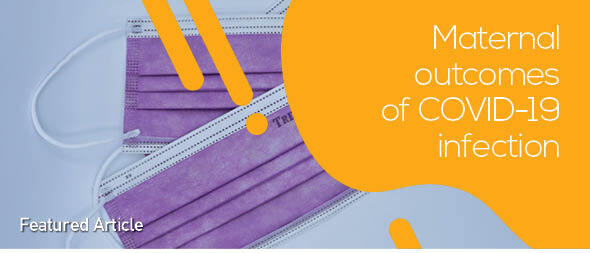Dear Editor,
The World Health Organization has declared that the COVID-19 pandemic has come to an end1. Despite the end of the COVID-19 pandemic, the reviews of the effect of this pandemic may prepare us for future pandemics.
The unprecedented challenges of the COVID-19 pandemic on the healthcare system affect all people especially pregnant women who are considered as the most vulnerable group due to the unique risk posed by that virus2. After analyzing maternal outcomes of the COVID-19 infection, we gathered some valuable insights which will be helpful to protect maternal health from future pandemics. Here we discuss the impact of COVID-19 on pregnancy outcomes, lessons learned, and recommendations to improve maternal care during future health crises.
According to the CDC, pregnancy with COVID-19 is complicated by pre-eclampsia, respiratory infection with other COVID-19 symptoms, increased rate of hospitalization, and preterm birth (less than 37 weeks) or stillbirth CDC3 intensive care unit admission, risk of maternal death rate, increased risk of maternal mortality, fetal distress, and low birth weight3,4.
Most of the severity and pregnancy complexity can be reduced by taking the COVID-19 vaccine. Women are still hesitant to take the COVID-19 vaccine which is a significant challenge for the global vaccination effort. There are lots of factors associated with a low vaccination rate during pregnancy, such as reluctance, lack of information, vaccinerelated misinformation, anxiety, and misperception of the related harmful effect on themselves and the fetus5.
The significance of adopting a comprehensive approach to maternal care during health crises is accentuated by the COVID-19 pandemic. Some basic lessons are given here.
During pandemic planning, pregnant women should be considered a high-priority group and equitable access to maternal healthcare must be ensured6. The healthcare system should confirm that maternal care remains accessible and uninterrupted7,8.
Healthcare infrastructures must be stable enough to handle demand surges along with the provision of essential services during future pandemics. In addition, it is crucial to inform pregnant women regarding available resources, risks, and preventive measures via true and accessible communication. Public health campaigns need to detect the concerns and disclose the misinformation to encourage a proper decision-making process. Reliable and comprehensive data collection, research work, and evidence-based intervention are critical to protecting health care during the pandemic7,8.
For improving maternal care during future global healthcare crises, we proposed the following recommendations.
Special training of the healthcare workforce for management of pregnancy including detection of associated risks and treatment during pandemics. The pandemic response strategies need to integrate comprehensive maternal care plans which will focus on prenatal care, safe delivery, and support of the postpartum period7,8. To address maternal health comprehensively, it is essential to foster collaboration between, policymakers, healthcare providers, agencies, and non-governmental organizations. Telehealth and remote monitoring systems must be ensured to provide virtual support and consultation8.
Observing the lessons learned during the pandemic may prepare us to take effective steps to protect maternal health during a future pandemic or contagious infectious disease situation.


